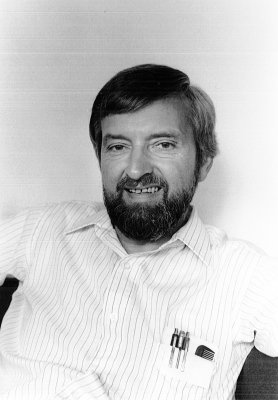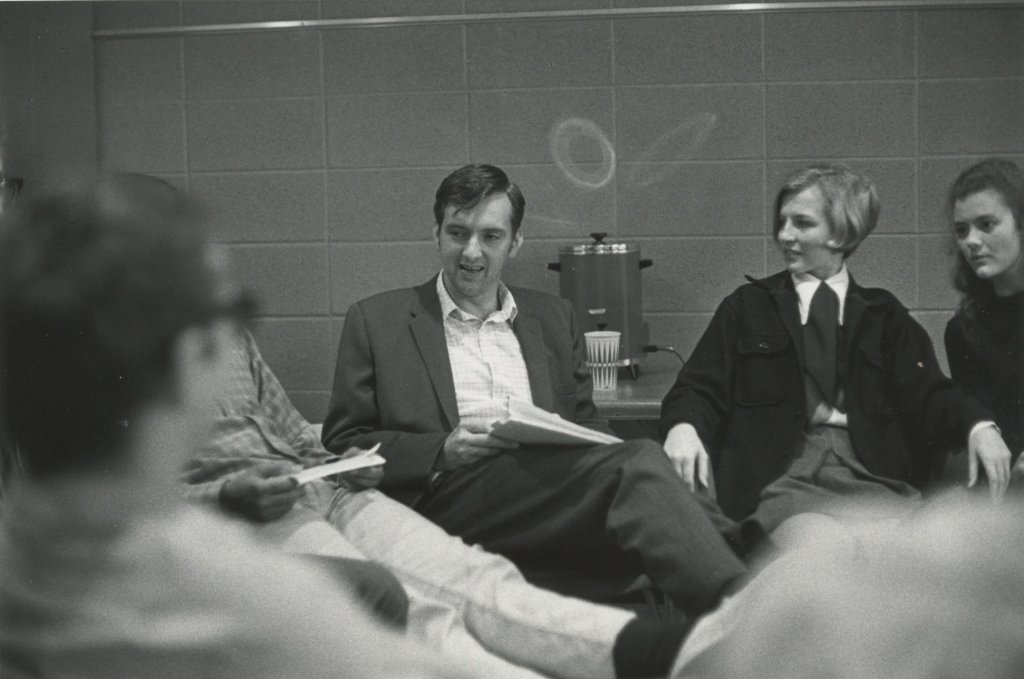J.R. Burkholder memorial service remarks, by Keith Graber Miller
Reflection as written for J.R. Burkholder’s memorial service, by Keith Graber Miller, professor of Bible, religion and philosophy
January 25, 2020

Among all of the 20th-century Anabaptist ethicists, sociologists, historians and social activists, J.R. Burkholder most nearly got it right, in terms of both his ethical analysis and his personal practice, crafting a theologically grounded, relevant and holistic response for Mennonites and others seeking to live faithfully in light of the current times, with fertile roots still linked to the ancient biblical text and a 16th-century radical tradition.
During a critical half-century of transition – encompassing the years I was coming of age – J.R. helped Anabaptist peace theology move with integrity beyond the sometimes-passive quietism of an earlier era toward a cautious yet faithful engagement with the world. And he did so without dismissing the value of the core peace convictions of his Anabaptist-Mennonite faith, without selling the Mennonite soul to Reinhold Niebuhr-style compromise and political realism, without uncritically accepting all of the rhetoric of the Christian and secular left.
His larger academic and churchly career included a wide array of peace-related involvements, beginning with a three-year stint with the Mennonite Board of Missions in Brazil in the 1950s, where he learned from emerging liberation theologians about praxis – the action-reflection cycle – a life of engaged reflection which he seemed genetically predisposed to embrace. J.R. was assisting with an interdenominational student work camp in the slums of Rio de Janeiro in 1955, while in that same city in that same year the Latin American Catholic bishops were having their first foundational CELAM meeting, the impetus for the emergence of Latin American liberation theologies.
His life’s work included leadership roles in seven congregations, including here at Assembly Mennonite Church; staff and committee work for multiple church agencies; four college, university and seminary teaching assignments, including a significant and sustained stint at Goshen College, where he helped found what is now the Peace, justice and conflict studies program; board membership with Christian Peacemaker Teams; leadership of the local Habitat for Humanity organization; membership in the Fellowship of Reconciliation National Council; involvement with public protests and civil disobedience, including one action that led to his arrest during his last semester of teaching at Goshen College; and consulting with Mennonite Central Committee, the National Association of Evangelicals and the National Council of Churches. Throughout his 70s and into his 80s he and Sue participated in the weekly vigil downtown at the Elkhart County Courthouse, with signs reading “Mourn the Dead” that prompted passersby to remember the nation’s ongoing wars.
As a mission worker, minister, professor, scholar and social activist, J.R. spent much of his life bridging worlds: interacting in Brazil with evangelical missionary colleagues and emerging revolutionary and liberationist movements; pastoring a conservative Mennonite congregation several days a week while devoting the other days to part-time work with Fellowship of Reconciliation; stretching himself intellectually between the appeals of the narrow sectarian way and broadminded Christian humanism; teaching at a relatively safe liberal arts campus while participating in public actions related to war-making; adding a unit on Gandhian nonviolence to a course on war, peace and nonresistance which he had inherited; being embedded in Mennonite institutions while spending extensive time in ecumenical conversations; retiring yet keeping his finger on the pulse of the community and world.

My first encounter with J.R. was in a liberation theology class I took with him at AMBS in the fall of 1985. Later, as I did research for my own dissertation on Mennonite Central Committee’s Washington advocacy office, I kept bumping up against J.R.’s profound and prophetic and formative work, beginning with his January 1960 seminal essay titled “Radical Pacifism Challenges the Mennonite Church” (written when he was only 31) through a host of other church-shifting papers, many of which were then unpublished. In the 1990s and well into this century I regularly invited J.R. to speak to my own Liberation Theologies class at Goshen College, where my students were privileged to hear his stories of experiences that shaped the direction of his teaching and writing, concrete connections with the world that informed every sermon, lecture and public presentation he ever gave.
In his modeling, teaching and extensive writings, J.R. inspired scores of students, colleagues and church people toward honest, engaged reflection and toward peacemaking vocations, and his insights are needed, perhaps more now than ever. Throughout his life, J.R. remained ever-curious, ever-informed, ever-connected, ever-perceptive, ever-prophetic. He contributed radically to the transformation – to the betterment – of Anabaptist communities and churches, and thereby to the betterment of the world. And his voice still resonates for 21st century folks who still find meaning in the teachings of Jesus and lives of zesty, faithful engagement.
J.R., our mentor and our friend, may you rest as you lived … in peace.




